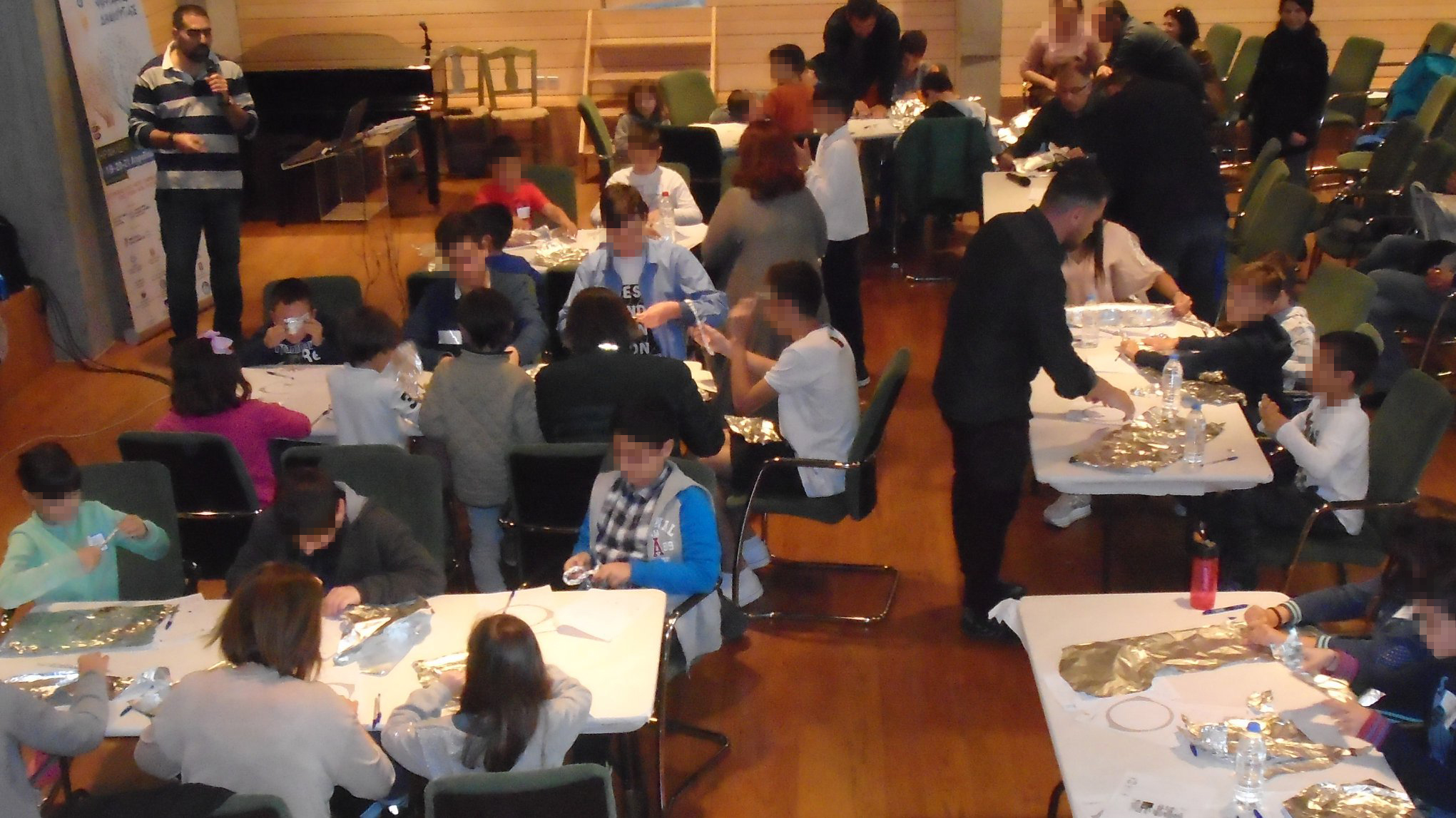Practice Description

Little Red-Smart-Hood
by FORTH added on 07 Nov 2019
|
Brief description:
|
The workshop is based on an online book and related resources (available in Greek), entitled “Little Red-Smart-Hood” (https://gramenos.wixsite.com/smarthood). The text is an adaptation of the original Grimm Brothers’ version of the “Little red cap” (or, riding hood) fairytale, “updated” with, state-of-the-art and emerging technologies. The goal of the workshop is to aid participants to learn about technologies that already affect their everyday lives or, are expected to shape their futures, and critically think (but also using humour) about them, overcoming the initial wow factor that these technologies create. |
|---|---|
|
Photos:
|
|
|
Countries:
(where the practice takes place)
|
Greece |
|
Cities:
(where the practice takes place)
|
Heraklion |
|
Organization name:
(running the practice)
|
FORTH |
|
Organization type:
|
Nonprofit |
|
Contact person:
|
Dimitris Grammenos |
|
Contact email:
(for further information and inquiries)
|
gramenos@ics.forth.gr |
|
Social media:
|
|
|
Related resources:
(e.g., web site, publications,media)
|
|
|
Participants’ age groups:
|
9 - 99 |
|
Indicative number of participants:
|
Number independent |
|
Oriented to a specific gender?
|
No |
|
Frequency:
(for the same group of participants)
|
Single-occasion |
|
Total duration:
(for the same group of participants)
|
90 minutes |
|
Location:
(where the practice takes place)
|
|
|
What are the role(s) of the adult(s) running the practice?
|
|
|
During the practice, participants…
|
|
|
Participants work…
|
|
|
What type of materials do participants use?
|
|
|
Pedagogical approach:
|
|
|
Social justice/equity approaches:
|
|
|
Does the practice have (explicit or implicit) learning objectives?
|
Explicit: Introduce and explain (new) technologies, trigger critical thinking regarding their potential positive and negative impact, benefits and problems, and allow children to imagine their own adaptations, based on their ideas, needs and preferences. |
|
Is the practice (explicitly or implicitly) connected to school curricula?
|
Yes, implicitly |
|
If connected in any way to school curricula, which subjects are covered?
|
|
|
Does the practice aim to have an impact on the engagement / interest of participants with a particular scientific topic, concept, phenomena, theory or career?
|
Yes: Get interested in and engage with technologies related to the Internet of Things. |
|
Does the practice aim to have an impact on the attitude of participants with a particular scientific topic, concept, phenomena, theory, or career?
|
Yes: Understand and not feel intimidated by technologies related to the Internet of Things. |
|
Does the practice aim to have an impact on the behavior of participants related to a particular scientific topic, concept, phenomena, theory, or career?
|
Yes: Critically think about Internet of Things technologies, overcoming the initial wow factor that these technologies create. |
|
Does the practice aim to have an impact on the development / reinforcement / practice of skills of participants?
|
Yes: Exercise critical and creative thinking. |
|
Additional notes:
|